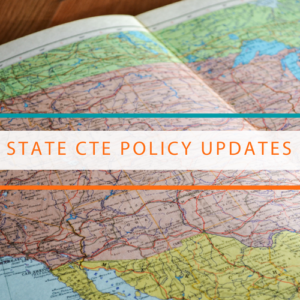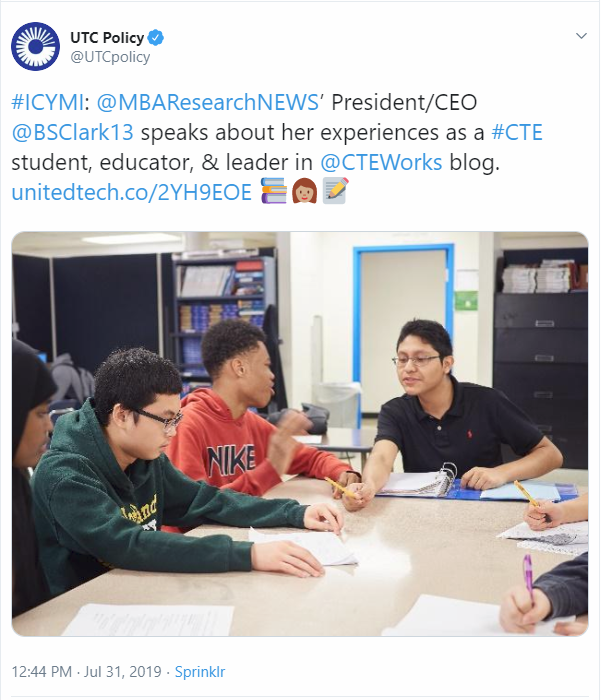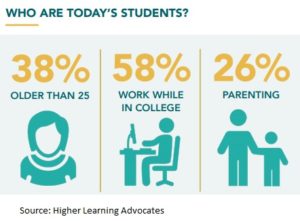This week, the Senate passed a $2.7 trillion budget agreement. Read below to learn more about the budget deal, as well as recent briefings on Career Technical Education (CTE) and cybersecurity, agriculture and short-term job-training programs.
Congress Reaches Budget Deal
Today, the Senate passed a $2.7 trillion budget agreement in a 67-28 vote. Through this agreement, the non-defense discretionary funding cap for Fiscal Year (FY) 2020 will increase by $27 billion and defense spending will increase by $22 billion. Each of those levels will go up by $2.5 billion in FY21.
This follows last week’s budgetary movement, when Congressional and Administration leaders worked together on an agreement to raise spending levels for FY20 and FY21, as well as suspend the debt ceiling. The House then passed the Bipartisan Budget Act of 2019 (H.R. 3877), a budget deal that raises the caps on defense and non-defense discretionary funding for FY20 and FY21 and suspends the debt limit through July 31, 2021.
Now, Senate Appropriations Committee Chair Richard Shelby (R-AL) will determine the division of funds between the 12 government funding bills, and the Committee will prepare each of the 12 funding bills to be voted on following August recess before government funding runs out on September 30.
House and Senate Panels Discuss Short-Term Programs and JOBS Act
This week, both the House and Senate held briefings on short-term job-focused college programs. The panel, sponsored by Opportunity America, along with Representatives Cedric Richmond (D-LA) and Anthony Gonzalez (R-OH), discussed the ways that high-quality short-term programs open up new opportunities for career growth. The group explained that short-term credentialing programs can prepare individuals for in-demand and high-wage careers, improving career opportunities for the student and filling employer vacancies. A former Virginia Community College System student who took advantage of such program explained that, as a result, he has “a career instead of a job.”
The panel also discussed the benefits of expanding Pell Grant eligibility to short-term job training programs, as outlined in the Jumpstart Our Businesses by Supporting Students (JOBS) Act (S. 839 and H.R. 3497). This legislation would expand Pell Grant eligibility to high-quality short-term postsecondary programs. Eligible short-term programs would have to be at least 150 clock hours over at least eight weeks, meet local or regional labor market needs, articulate to institutional credit and provide students with a recognized postsecondary license, certification or credential.
Senate CTE Caucus Holds Briefings on Cybersecurity and Agriculture
The Congressional Career Technical Education (CTE) and Cybersecurity Caucuses held a joint briefing last week on “Building a Culture of Security: Integrating Cyber into Career and Technical Education.” The event featured a panel of cybersecurity and CTE experts speaking about the importance of integrating cybersecurity education into CTE programs, creating jobs in the cybersecurity field and anticipating future security threats to the country. When asked about public misconceptions regarding the skills needed to enter the field, panelists noted that there are a variety of cybersecurity career opportunities outside of the traditional computer science pathway.
The Senate CTE Caucus also held a briefing last week on “Agricultural Education and the National FFA Organization.” Current and past National Future Farmers of America (FFA) students and educators spoke about the impact of agricultural education on their understanding of food and health. The current students also shared that their CTE and FFA experiences gave them optimism about finding the job of their choice in their area of interest. Senator Todd Young (R-IN), Co-Chair of the Senate CTE Caucus, spoke about the important role of the agricultural industry, and encouraged today’s students to continue to follow their passions while in school.
Meredith Hills, Policy Associate and Jade Richards, Policy Fellow


 Dallas County, Texas – like many communities across the country – is grappling with a lack of a skilled talent pipeline for its growing industries, in large part due to the lack of affordability and supports for postsecondary education. In Dallas County, only 37 percent of adults have a two- or four-year degree, yet 65 percent of living-wage jobs require an education beyond high school.
Dallas County, Texas – like many communities across the country – is grappling with a lack of a skilled talent pipeline for its growing industries, in large part due to the lack of affordability and supports for postsecondary education. In Dallas County, only 37 percent of adults have a two- or four-year degree, yet 65 percent of living-wage jobs require an education beyond high school.



 Some states are exploring how to leverage apprenticeships to award college credit to learners. For instance, the Colorado legislature passed
Some states are exploring how to leverage apprenticeships to award college credit to learners. For instance, the Colorado legislature passed 
 REPORT:
REPORT:  While most people think of the typical college student as coming directly from high school, the reality is that
While most people think of the typical college student as coming directly from high school, the reality is that